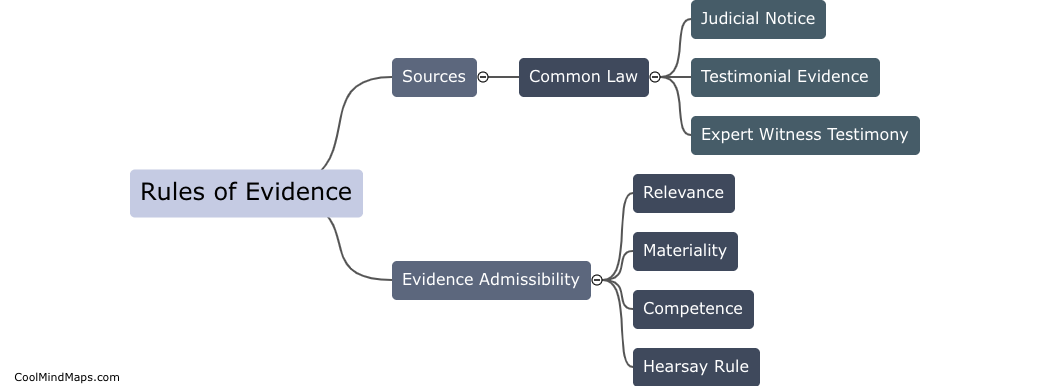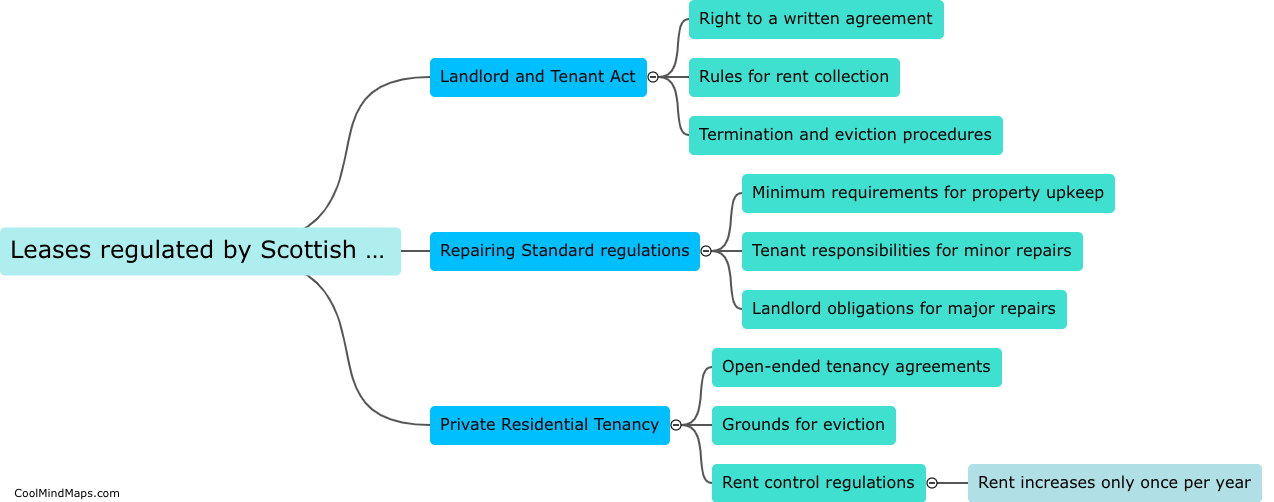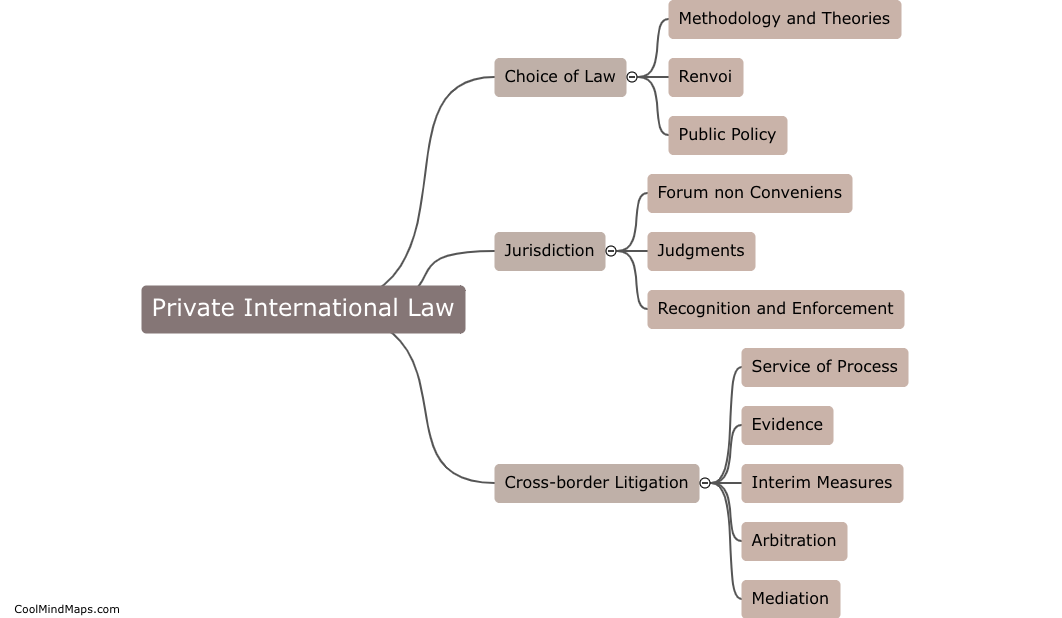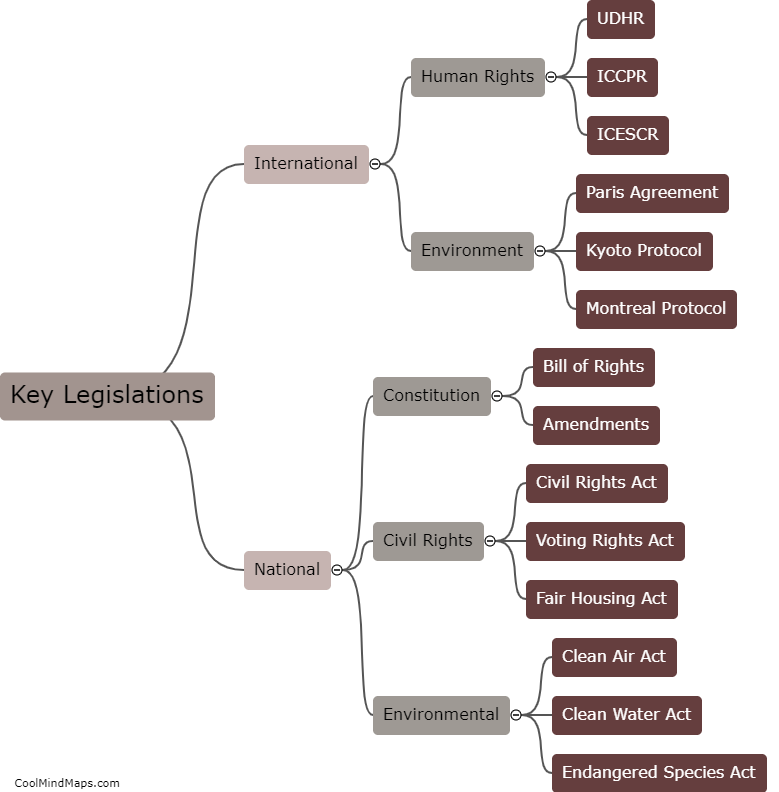What are the rules of evidence in Scotland?
The rules of evidence in Scotland are set out in the Criminal Procedure (Scotland) Act 1995. The Act governs criminal proceedings in Scotland and sets out the guidelines for how evidence should be gathered and presented in court. The admissibility of evidence is determined by the court, which takes into account the relevance of the evidence, its reliability and whether it has been obtained lawfully. In Scotland, the requirements for the admissibility and exclusion of evidence are stricter than in other countries, with a focus on ensuring the fairness of the trial process. The rules of evidence in Scotland also provide for the protection of vulnerable witnesses, including children and those with a disability or mental health problems.

This mind map was published on 20 April 2023 and has been viewed 116 times.











